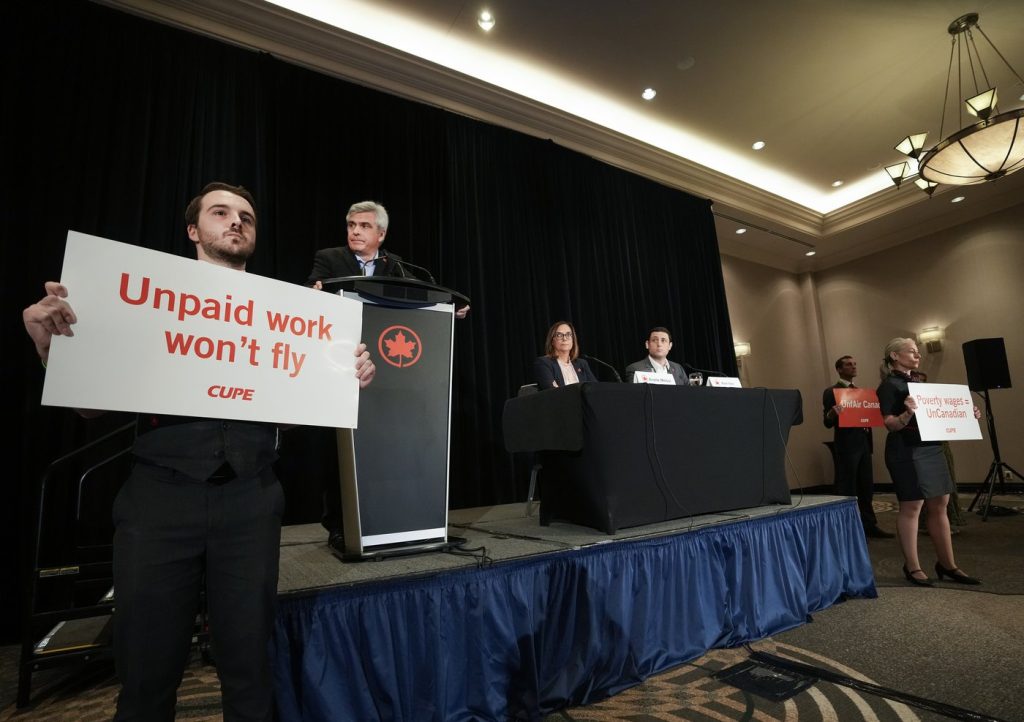Labour experts warn that if the government of Ottawa responds favorably to Air Canada’s request for intervention in its contract dispute with its flight attendants' union, it may set a concerning precedent that could undermine collective bargaining rights in future negotiations. Air Canada has called for government-directed arbitration under Section 107 of the Canada Labour Code. So far, the federal government has not made any indication regarding its intervention.
The request from Air Canada comes at a critical time, as approximately 10,000 flight attendants working for Air Canada and its subsidiary, Air Canada Rouge, are preparing to initiate a strike at 1 a.m. on Saturday. In anticipation of a potential labor stoppage, the airline has also threatened to lock out the attendants unless an agreement can be reached at the last minute.
On Thursday morning, federal Jobs Minister Patty Hajdu confirmed that she has acknowledged Air Canada's request for government involvement in the labor dispute. She expressed her expectation for the flight attendants’ union to respond to the request and emphasized the importance of both parties returning to negotiations. Her statement reflects the government's attempt to mitigate the situation before it escalates into a labor disruption.
Brock University labour professor Larry Savage commented on the unfolding situation, stating that Air Canada appears to be using its lockout notice as leverage over the Prime Minister and his government. This scenario poses a challenge for the Mark Carney-led Liberal government, which is now facing its first significant work stoppage among federally regulated employees.
Professor Savage noted that while there is a historical precedent for government interventions in labor disputes within Canada, he finds the growing dependency on ministerial involvement in these situations to be "troublesome." Such an increasing reliance on direct government actions may set a negative trend for the future of labor relations and collective bargaining in the country.
This conflict occurs amid broader discussions around labor rights and the dynamics of negotiation power between corporations and unions. The outcome of this specific dispute, and whether the government will choose to intervene as requested, might influence not only the immediate situation but also the landscape of labor relations and collective bargaining practices in Canada moving forward.
The situation is being closely monitored by various stakeholders, including labor advocates, corporate leaders, and government officials. As both sides are urged to find common ground, the stakes remain high for the flight attendants and Air Canada, along with implications for the future of labor negotiations in Canada.











